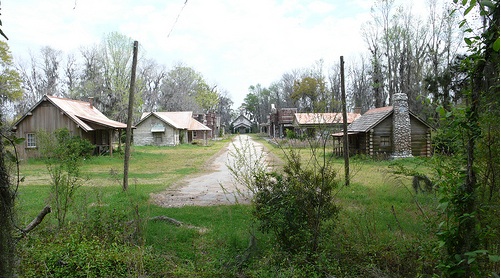![]() I have a question about formatting for a script I’ve been working on. The concept involves some scenes being completely silent, but with an occasional sound coming through (i.e. everything’s silent, including speech, until someone breaks a glass and the shattering is audible).
I have a question about formatting for a script I’ve been working on. The concept involves some scenes being completely silent, but with an occasional sound coming through (i.e. everything’s silent, including speech, until someone breaks a glass and the shattering is audible).
I’ve tried a couple of different methods of formatting this but I’m not sure what makes the most sense. In early drafts, I just designated the scene as “Silent” at the beginning and capitalized the sounds that broke through. My writers’ group found this to be strange so in my latest draft I tried it with “M.O.S.” attached to every action that was supposed to be silent, but they didn’t like that either.
So now I’m kind of stumped on how to translate this idea to the page. Is there a way to format it that makes sense? I want it to be as clear as possible to readers.
— Cali
Seattle
My hunch is that you are doing too much, and it’s slowing down the read. A modern screenplay isn’t a list of camera angles and sound cues. It reads more like journalistic, present-tense fiction. (Think Hemingway, not Faulkner.)
If certain scenes are going to be silent, and other ones aren’t, my inclination would be to flag them in the scene headers, the same way you call out special events like [RAINING] or [DRIVING]. So in your case…
INT. KITCHEN – NIGHT [SILENT]
Within scenes, putting those few audible sounds in UPPERCASE makes sense. Remember, treat your readers like audience members, and think about it from their perspective.
For example, in the [second pilot](http://johnaugust.com/downloads_ripley/ops_venezuela_pilot_2.pdf) Jordan Mechner and I wrote for [Ops](http://johnaugust.com/archives/2006/ops-stops), we had an extended sequence with no natural sound. It was important to showcase why this was going to be cool:
INT. KIDNAP SHACK – DAY
Brilliant shafts of sunlight burst through the corrugated metal walls of the shack. We don’t hear the gunshots or the hits — we simply watch as the holes open up.
Under the cot, Dagny is screaming, but we don’t hear it — we only see her open mouth.
EXT. JUNGLE – DAY
Only now do we see Gonzales and his men silently firing, emptying the clips of their fully-automatic rifles.
INT. KIDNAP SHACK – DAY
Vanowen is flat on the floor, looking out through a broken board. Sweat is dripping into his eyes, but he stays rock-solid.
EXT. JUNGLE – DAY
Gonzales signals for his men to stop. They listen. One man takes a few steps to his right.
INT. KIDNAP SHACK – DAY
Vanowen squeezes the .45 trigger. This SINGLE SHOT is deafening. (At this point, normal SOUND RESUMES.)
Look at your silent scenes from your reader’s perspective, and try to read them without knowing what’s happening next. You’re not nearly as curious what it sounds like as what it _feels_ like to have the sound missing. Write that.
 ](http://www.flickr.com/photos/derekfrey/sets/72157604393626472/)
](http://www.flickr.com/photos/derekfrey/sets/72157604393626472/)